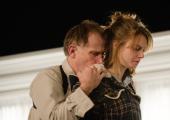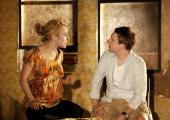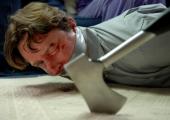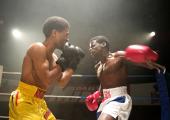Blasted, Lyric Hammersmith

Naturalistic, and slow, revival of Sarah Kane’s legendary 1995 debut
If any play of the past two decades deserves the label legendary it must be Sarah Kane’s debut, which was condemned as “this disgusting feast of filth” on its arrival in 1995, but is now firmly ensconced in the canon of contemporary playwriting. Although the shock of its original production, which in retrospect simply heralded the appearance of a distinctive new voice, has led audiences to expect a similarly frightful experience every time it is revived, subsequent productions have emphasised the play’s poetry and its relevance.









